SA Wine Trailblazers: Wade Sander
“I knew from when I was in primary school that I wanted to work in the wine industry,” shares 28-year-old, Wade Sander. Wade is an associate winemaker at Mullineux & Leeu Family Wines; he’s talking to me from the Leeu Passant cellar in Franschhoek, over 100 kilometres away from my home in Noordhoek, where I sit with an open screen. This is our industry’s new normal in the wake of the Covid-19 crisis; flooded with online tastings and virtual interviews. Wade is currently racking tanks, after the 2020 harvest was allowed to continue by the government. There are just three of them in the cellar.
“I’m a city boy,” says Wade when I ask him about his up-bringing. “I grew up in Johannesburg far away from any vineyards and cellars, and Afrikaans for that matter. My parents are originally from Kwa–Zulu Natal. They both moved to Johannesburg in the end days of apartheid in the hope of building a better life, where they later met and settled. I am the youngest of three with an older brother and sister.
“My parents were instrumental in creating my love for wine,” continues Wade. They had a real appreciation for good food and wine, which allowed for exposure at quite a young age. My father also boasted a modest wine collection in those days, and for some reason I was completely absorbed by it. Regularly organising and doing stock take. I had also started twisting my parent’s arms and was attending IW&FS and Great Domaines tastings. The wine world just started opening up to me and I was captivated.”
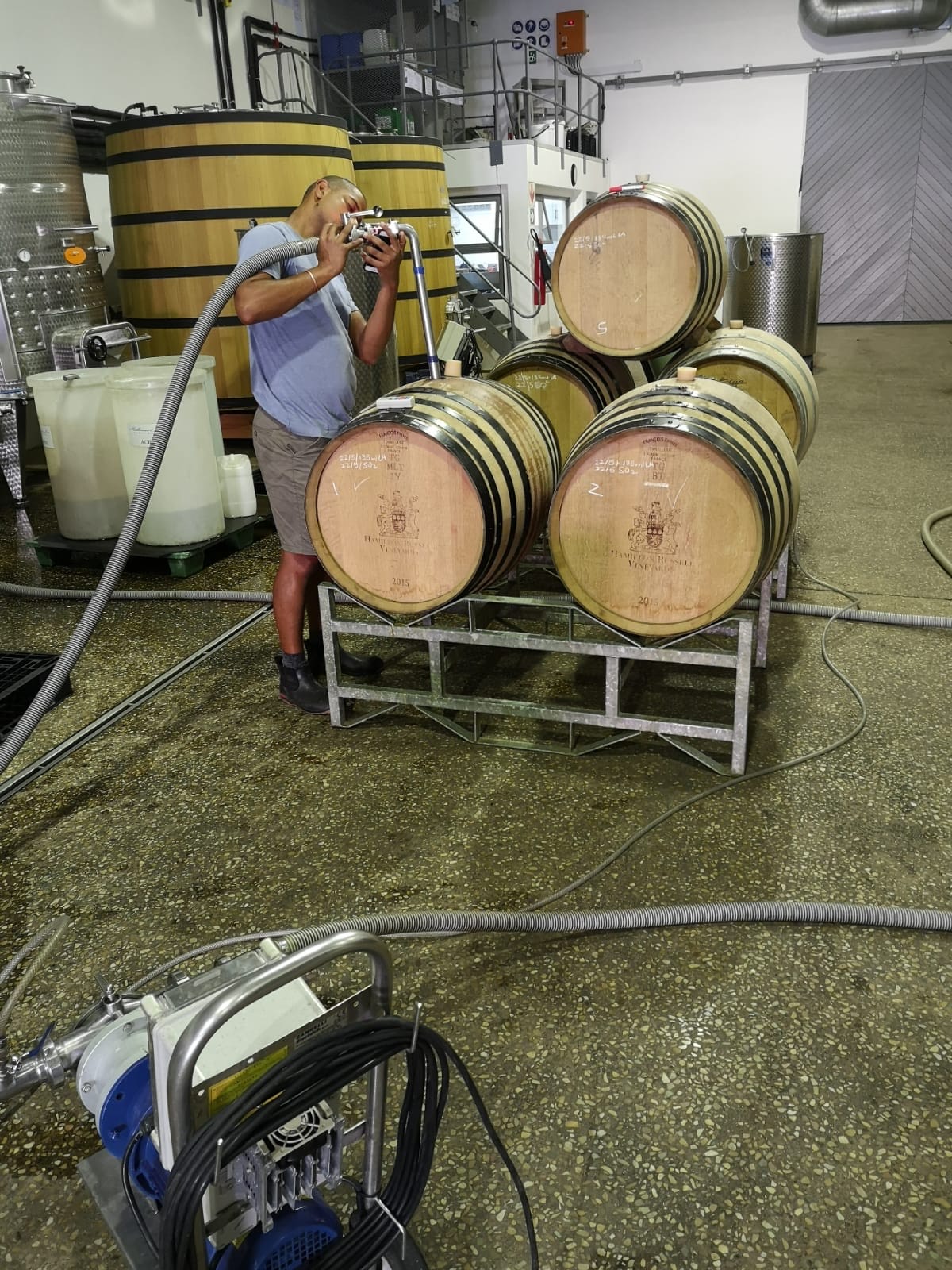
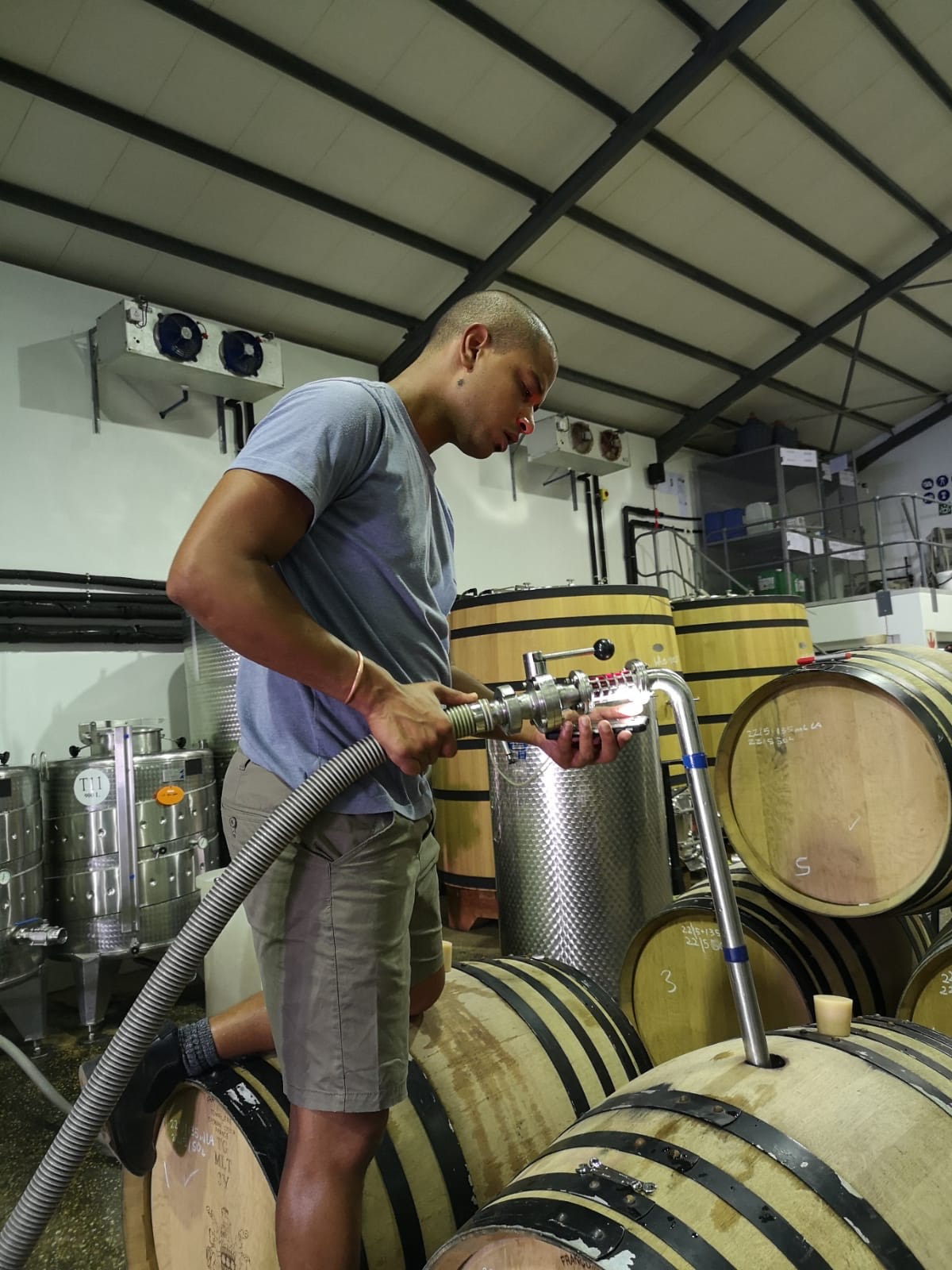
Along with a Bachelors Degree in Agriculture Degree: Viticulture and Oenology from Elsenburg, Wade is also a graduate of the Cape Winemakers Guild Protégé Programme. Lauded as the most successful skills development programme in the South African wine industry, the programme was launched in 2006 and has seen 23 participants complete the three-year internship.
The Guild states the aim of the programme: is to cultivate the next generation of award-winning winemakers and viticulturists through mentorship and empowerment, whilst promoting transformation within the industry.
“Joining the Protégé Programme was a no brainer,” Wade says simply. It is unrivalled in terms of exposure to the industry, with emphasis on quality production, and is the ideal vehicle for any aspiring winemaker. The highlight of the programme for me was the diversity afforded to interns. I worked in Stellenbosch with Etienne Le Riche one of the most renowned winemakers to ever work with Bordeaux cultivars in South Africa. I was then able to completely change environments and pursue a personal interest in pinot noir with Peter Finlayson, probably the most respected pinot palate in the country. If that was not enough, I then completely changed region and climates again and joined the Mullineuxs in the Swartland to explore the concept of natural winemaking. During the three-year period I also completed harvests in the States, the Loire Valley, Jura and Mosel.
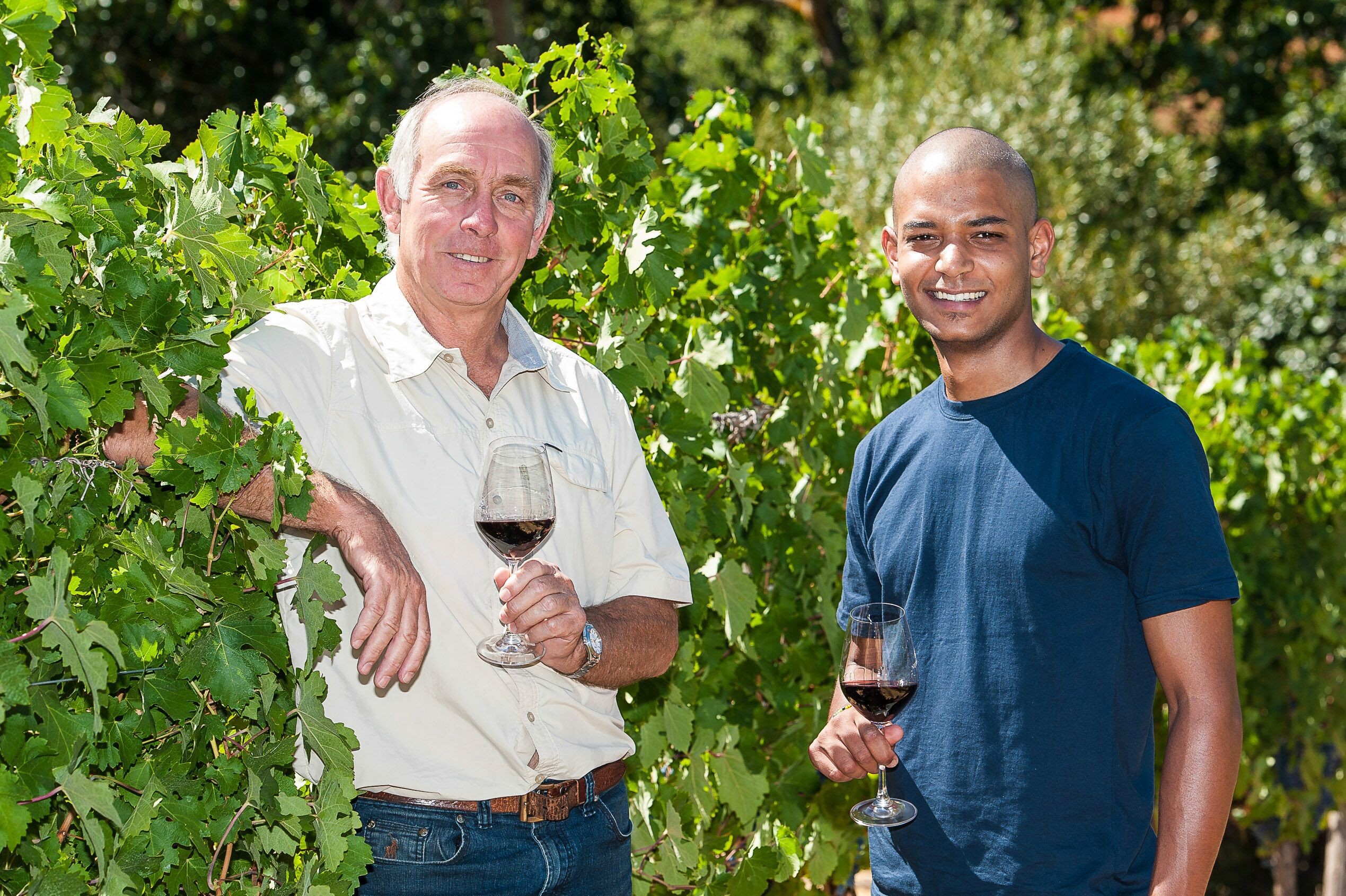
What did Wade take from his year at Le Riche? “The supreme calmness and measured approach that Etienne Le Riche has in the cellar,” shares Wade. “I was fresh out varsity and raring to go, and he very quickly put a stop to that. He taught me that things work at their own pace.”
His next year at Bouchard Finlayson also proved fundamental, cementing a passion for pinot noir.
“I also learnt perspective there. I was exposed a bit more to the business and commercial reality of the wine industry. I’ll never forget in my first month there Peter said to me, ‘winemaking is a blood sport’.
“The first wine I ever made was a pinot noir at Bouchard. I think that great pinot achieves what other varietals could only hope to. Where other grapes tempt and impress with fruit and structure, pinot is about seduction and possesses a silent confidence.”
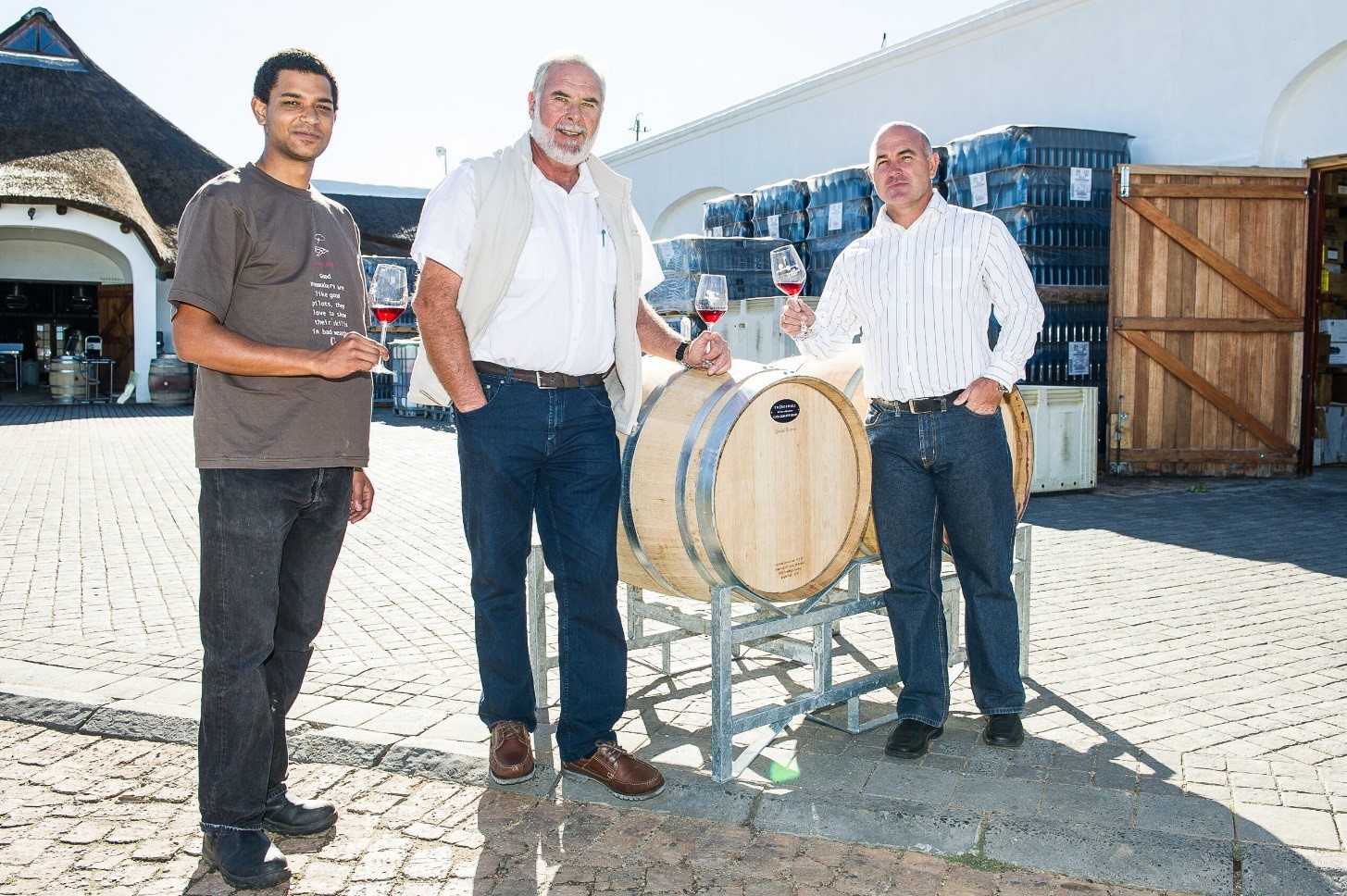
I reached out to Peter Finlayson for a comment on Wade, he said: “Wade is one of those extraordinary people who simply fits in everywhere. Instantly likeable and quietly determined and specific about his intention in life. It would have been a compliment to us had he decided to stay on after his internship.”
Wade’s final year was with Mullineux & Leeu Family Wines, where he stayed on as an associate winemaker.
“The Mullineuxs instilled in me dedication to the cause. There a few producers in the world that are as committed to quality production as them,” says Wade. It is an endless exercise in evaluation and improvement.
“Over the last five years it has become less of a job and more of a mutual commitment to producing quality wine. The Mullineuxs are uncompromising in their approach and hold themselves to the highest standards.”
The most important lessons I have learnt from Andrea is her approach to natural winemaking and how that has informed my personal philosophy. What was possibly more important to a young winemaker was her approach to stabilisation and getting natural wines ready for bottling. Anyone can run a natural ferment but there is a thin line between natural and faulty.
Andrea’s favourite saying in the cellar is, “Measure twice, cut once”. No decision is made in haste.
Racking her own tanks in the Swartland cellar on Roundstone Farm, Andrea took a moment to also share her thoughts on this rising star.
“I met Wade in 2013 during my first year in the Guild. I very vividly remember him approaching me at a tasting and asking if I would consider him as a Protégé. It was an easy yes!
“Wade is a highly motivated individual who knows what it takes to succeed and is not afraid of putting in the elbow grease and hours that it takes to achieve that. He is a very loyal and family-oriented person, so when you combine that with his work ethic, it was an obvious choice to promote him from Protégé up to working as my associate winemaker as part of the Mullineux & Leeu Family.”
What’s next for this young winemaker? When not working on the Mullineux & Leeu wines, he’s taken that formative obsession with pinot noir and has started his own brand, Brunia Pinot Noir, which has gone on to receive much praise from critics.
“My personal project is a result of my family investing in an organic farm in Sondagskloof in the Overberg. It’s a family affair, with my brother and myself managing the vineyards. We currently have 17Ha of vineyard, with 11Ha of sauvignon blanc and 1.5Ha each of pinot noir, chardonnay, syrah and semillon.”
Wade says that the farm is multi-enterprise and is also planted to fruit and vegetables, along with tracts of fynbos that they sustainably harvest for export flowers and honey production.
“We currently sell most of our wine grape production to other producers, but I have been vinifying small quantities since 2017 under our Brunia label, named after a rare fynbos species found widely on the farm,” explains Wade.
2.jpg)
“My winemaking philosophy favours a natural style, making use of indigenous yeast without any other additions besides bentonite and sulphur at bottling. I believe whole-heartedly in cool climate growing conditions, the resultant wines possess low pH and lively natural acidities that lend themselves to minimal intervention, not to mention unrivalled hang-time in the vineyards. All the more relevant given the drought and climate change issues the industry is facing.
“Soon under the Brunia label I’ll also be releasing a semillon, a white blend of sauvignon blanc and semillon as well as a syrah.
Before I let Wade get back to racking, I have one final question: What do you think the future holds for the SA wine industry and what is your part to play in it?
Wade doesn’t miss a beat: “I think the industry is in an incredibly exciting time in terms of quality. We have finally understood the importance of farming correctly and getting quality to fruit to the cellar. Also, I feel we have embraced, or just started to better understand the concept of appellation and are allowing this speak to more in our wines.
“I do believe we still have fair way to go in terms of diversity, and I would like to see more black winemakers and viticulturists involved in premium side of the industry instead of falling into the cooperative set ups. Initiatives such as the Cape Winemakers Guild Protégé Programme are slowly changing this. I hope to set an example to others, to show what is possible.”
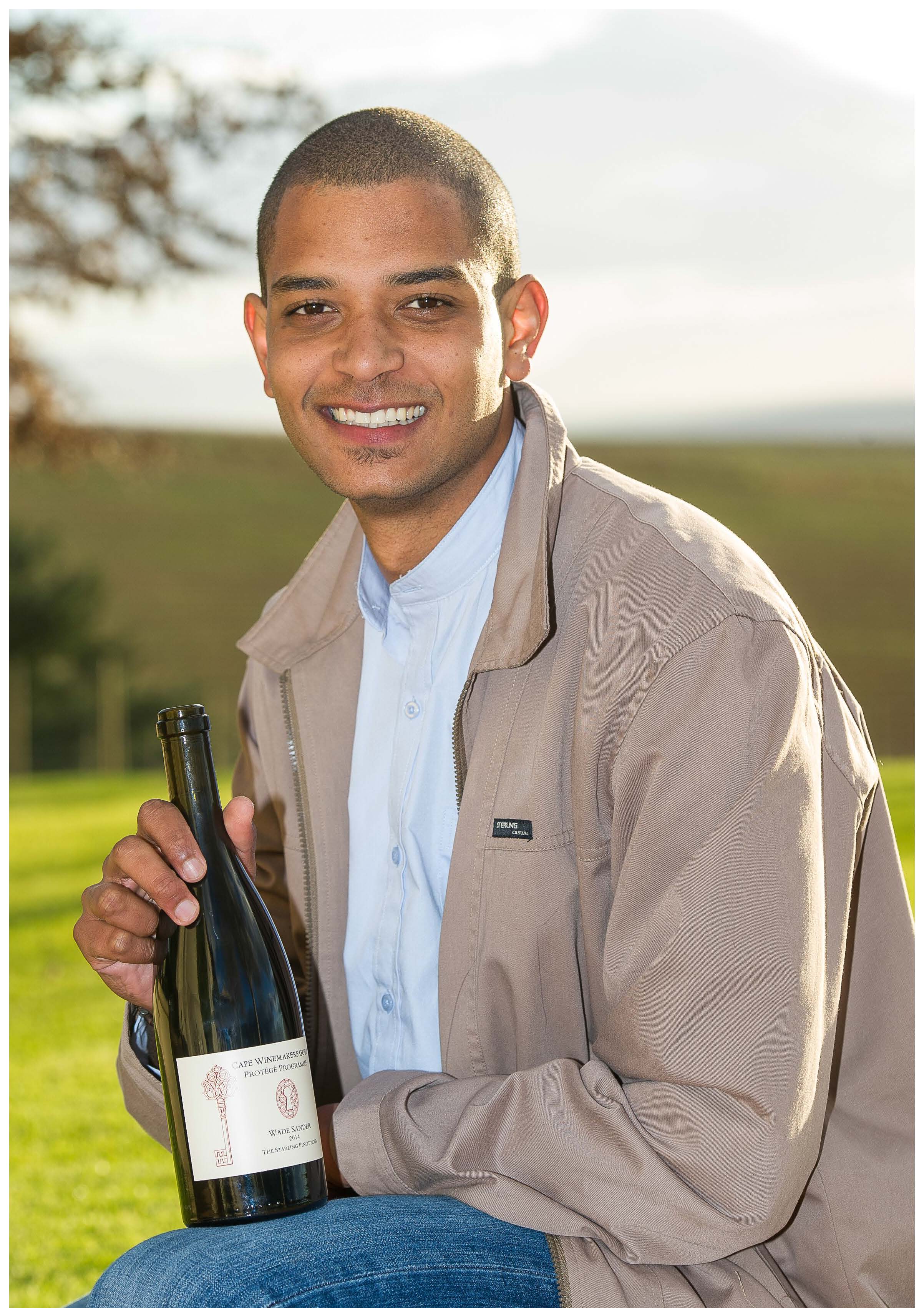
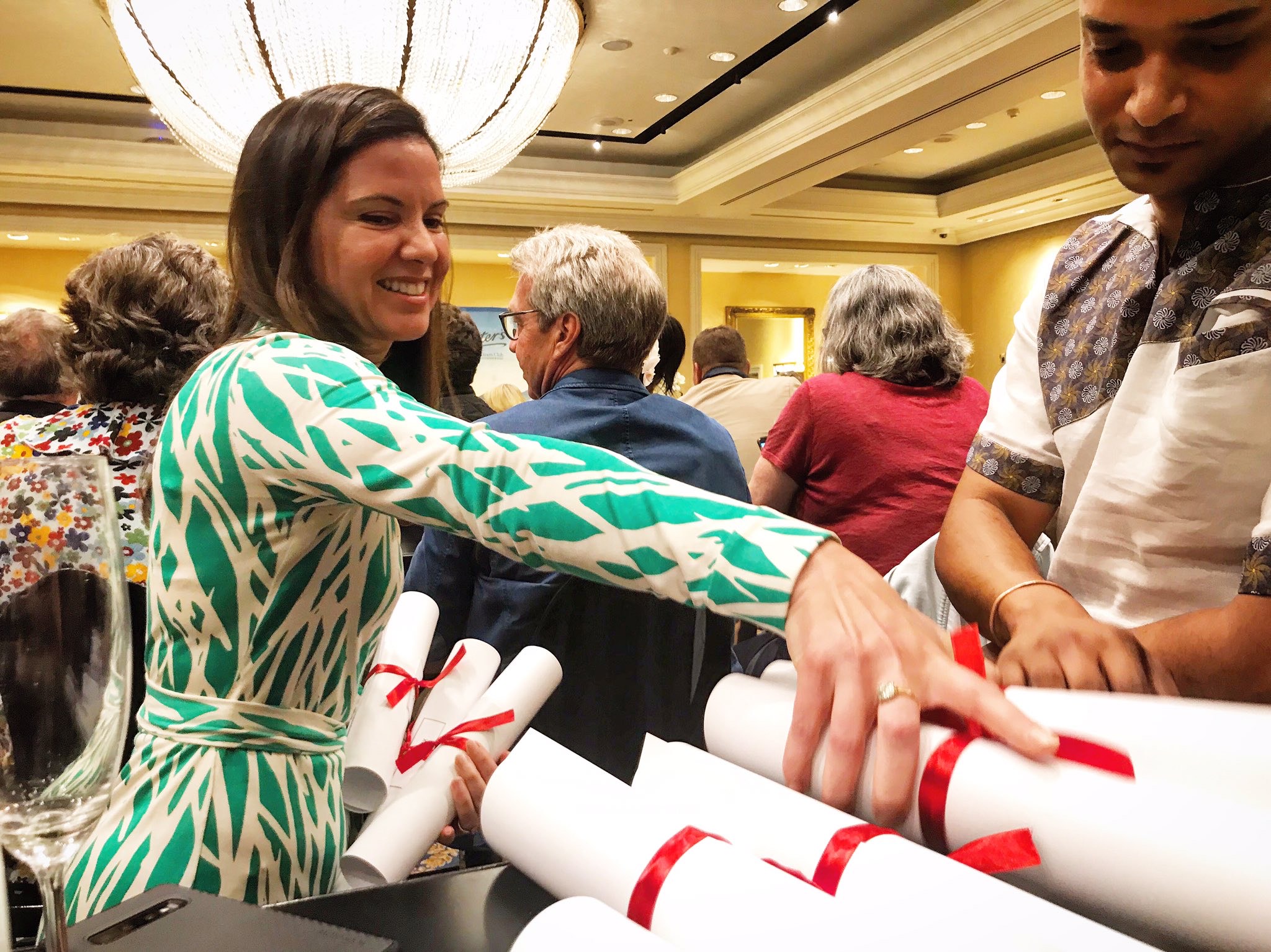
- By Malu Lambert